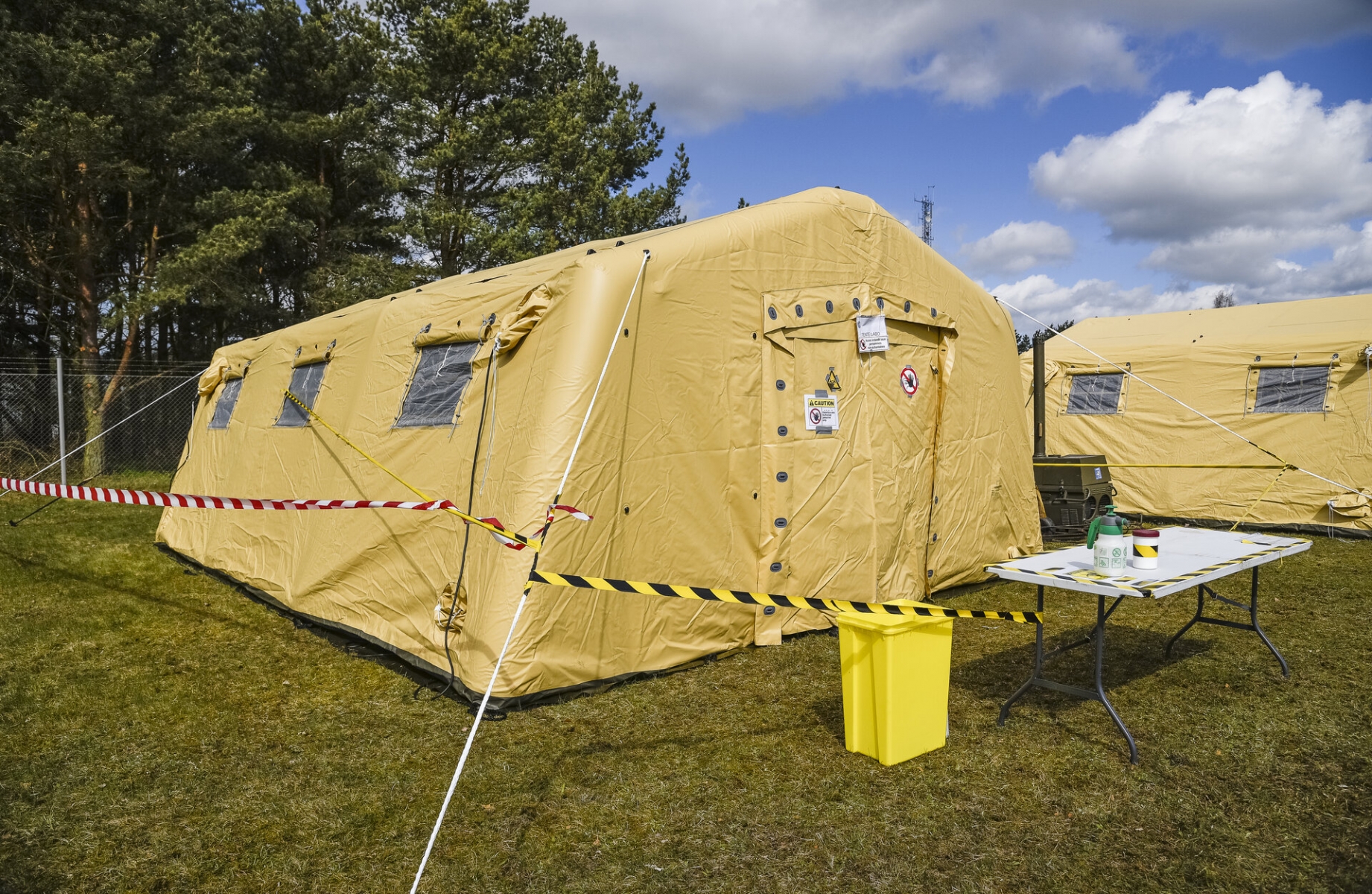A deployable laboratory that can test frontline healthcare staff, civil protection volunteers and police forces for the coronavirus has left Belgium and is on its way to Piedmont, Italy.
Italy has been badly affected by the pandemic. In response ESA has been working to identify how space can help.
A transportable diagnostics laboratory developed at the University of Louvain in Belgium with ESA’s support is now being deployed to help with the fight against the coronavirus.

The system first proved its worth during the Ebola outbreak in N’Zerekore, Guinea, from 2014 to 2015.
It will be used to collect nasopharyngeal swabs and analyse them to identify whether or not a person has the coronavirus, as well as to perform the antibody test that can demonstrate whether a person who has been infected has an immune response to the virus.
Administering the tests will enable people in essential roles to return to work if they have a negative swab test or if they have a positive antibody test.
Jean-Luc Gala, director of the Centre for Applied Molecular Technologies at the University of Louvain (UCLouvain), leads the team overseeing the deployment and will be operating the deployable laboratory in Piedmont.
“We have developed a smart strategy to diagnose infected patients and to identify those who have protection against the virus. Our second smart strategy is to train people to operate the diagnostic devices and to do the tests. We see this as a golden opportunity to train as many as 20 local biologists,” he says. These biologists will then be able to train other colleagues, thereby scaling-up the screening.
Called B-LiFE, short for “a biological light fieldable laboratory for emergencies”, the system comprises: easy-to-set-up tents both for the laboratory and command and control parts; specialised equipment to rapidly analyse samples; a laboratory information and management system to safely collect and store all the results produced in real time; and dedicated satellite antennas for reliable and secure communication between local staff and remote medical care centres.
It relies on several space-enabled features including satellite communications, Earth observation data and geo-positioning data delivered via satellite.
Together these allow the real-time transmission of analytical results, bidirectional communication with remote experts, broadband links for transferring large datasets through an autonomous telecommunication system, and geolocation of cases enabling real-time epidemiological mapping.
“During the Ebola crisis, real-time telecommunications were crucial to provide the information which could be given by specialist experts. Satellite communications are vital as telecommunications networks can rapidly become saturated in some circumstances and we need our own autonomous system,” says Roland Gueubel of UCLouvain.
“B-LiFE was designed many years ago for epidemics. I must congratulate ESA for its vision and support.”
Arnaud Runge, medical engineer overseeing the mission at ESA, says: “What sets B-LiFE apart from other existing laboratories is that it utilises multiple space assets. This significantly improves the workflow and effectiveness of the laboratory. ESA has been very active with a number of relevant initiatives to support the fight against the COVID-19, and the deployment of B-LiFE is one of them”
B-LiFE is certified under the EU’s civil protection mechanism, which aims to enable national authorities to exchange information to identify best practice and work interchangeably when disaster strikes.
ESA Space Solutions
ESA Space Solutions aims at reaching commercial exploitation of space assets, data and capabilities addressing incubation, proving technical feasibility and business development. This includes the development of operational services for a wide range of users through the combination of different systems, and support in creating viable companies as well as to existing companies.


